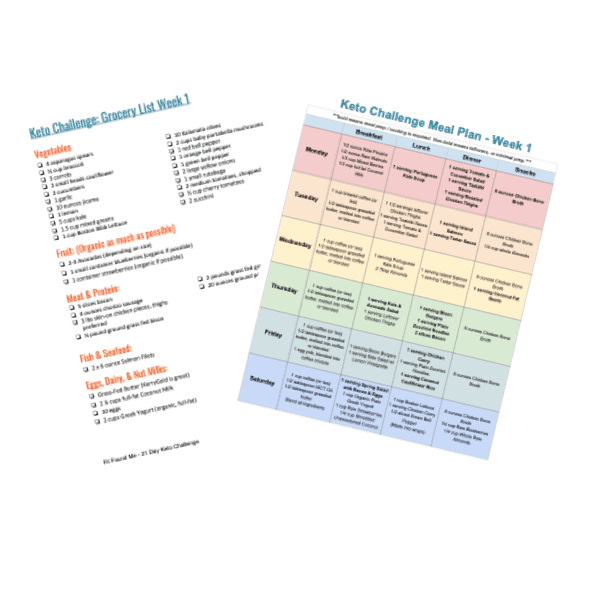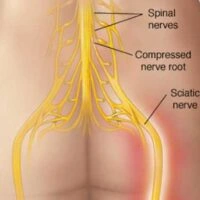Pain, sickness, weight gain, exhaustion and lethargy are all widely considered to be common issues associated with getting older. Getting older does not mean that you have to deal with these issues. It is possible to grow older with more energy, reduced risk of injury and feeling younger.
We all know that nutrition is a huge part of creating a healthy life for yourself, but did you know that specific diets can be really helpful for us as we age? For example, a keto diet for seniors could be beneficial for many reasons.

While we can expect to see certain signs of aging they don’t have to be debilitating or negatively impacting. With the right diet and lifestyle, these signs of aging can be less impactful.
As we have been taught, highly processed, high carb diet can wreak havoc with anyone’s health, let alone a senior who is working on improving their health. If you are looking for a healthy diet plan, you may find that a ketogenic diet is a great option. Keto for women in general has been a popular healthy option for many years.
How do our Bodies Change as we Age?
Not to harp on this topic, but the reality is that our bodies do change as we age. Besides all of the small changes that happen, there are several key changes that we should understand and be prepared for as they come:
1. The Risk of Cardiovascular Disease is Increased
As we get older, our blood pressure tends to increase, while our blood flow slows down. Additionally, if our younger years are filled with unhealthy eating habits can mean plaque build up in our arteries and even higher blood pressure. This means that our hearts have to pump harder, especially during exercise or fighting off illness.
The good news though is that by making the right changes in your diet and lifestyle, these issues can be reversed. Changes such as eating a well balanced diet with reduced sugar, increased fiber and choosing lean protein can make all the difference.
2. Metabolic Slow Down
Anyone who has struggled with weight loss as they have gotten older will know that as we age, we experience metabolic slow down. You can expect your metabolism to slow down about 10% per decade as you age.
Metabolism is the rate in which your body breaks down food and burns energy. Due to this slow down, you may actually find that as we age we also have a reduced appetite to go along with our slower metabolism.
With a slower metabolism, our bodies absorb nutrients at a similarly slowed rate. This is why we should be focusing on eating a healthy, nutrient dense diet.
3. Loss of Muscle Mass
Another thing that many of us don’t look forward to in our older years is the fact that we tend to lose muscle mass as we age. Muscle mass is important for many reasons and can help us to age more gracefully. Here are some of the other benefits that come with good muscle mass:
- Strength
- Mobility
- Increased Metabolic Rate
Maintaining muscle mass is imperative to preventing weight gain as we age. Weight gain often happens due to the slowed metabolic rate and the decreased activity that often comes with age.
To avoid losing muscle mass, you need to eat a well balanced diet filled with healthy fats and lean protein. Additionally, exercise is important. Resistance training such as body weight exercises, weight lifting, etc, can be a huge help in preventing this loss of strength and muscle mass.
What is the Ketogenic Diet?
A ketogenic diet is a diet that is focused on foods that are high in protein and are low carbohydrate. With a ketogenic diet, you get most of your calories from protein and fat as opposed to carbohydrates. This means that with this diet you can expect to cut down on foods such as bread, pastries, sugar and soda.

21 Day Keto Challenge + Meal Plan
This challenge pack is everything you need to lose weight fast on keto. Whether you are a short-term keto or lifestyle keto, this is a great meal plan pack!
What is Different About the Keto Diet?
The keto diet is a version of a low-carb diet that you have undoubtedly heard about before. This one though, is a bit more restrictive. While the goal of your typical low-carb diet is to stick to restricting your carbs to roughly 20% of your daily calorie intake (about 100 grams per day).
The keto diet restricts you down further, about 30 to 50 grams of carbohydrates per day.
In Western society, the typical Western diet includes up to 325 grams of carbohydrates per day. To break it down even further and give you an idea of how many carbs typical foods offer, check out this breakdown:
- A single serving of pasta contains 32 grams of carbohydrates
- A slice of white bread contains 15 grams of carbohydrates
- A banana contains 19 grams of carbohydrates
- A single potato contains 11-15 grams of carbohydrates
What is Ketosis?
The goal of the keto diet is for your body to enter a metabolic state. This state is known as ketosis. Ketosis is a state in which your body no longer uses glucose as its main fuel source, but instead uses ketones and fat.
Typically the body uses glucose as its energy source. This glucose is stored in the liver and released when needed for energy. When your liver no longer has glucose stores to use for energy, it will then make ketone bodies using the fat you eat (and your own body fat) to use as energy.
The liver constantly produces ketones (even on typical, non low-carbohydrate diets), but when you are on a low carb diet, this production is ramped up. While in ketosis, these ketone bodies supply half of your overall energy.
This ketosis level also means that your body is using fat for its energy source. This is the reason why many people experience weight loss while in a state of ketosis.

What Types of Fat are Good in a Keto Diet?
Yes, fats are encouraged while you are on a keto diet! It is important though to make sure to eat the right kinds of fat. In the keto diet, you should avoid saturation and trans fats. These types of fats are associated with unhealthy, processed foods and are often high in cholesterol. These fats are known to do damage to your overall health.
The types of fats that you should be sure to include in your diet are:
Monounsaturated Fats
Monounsaturated fats are found in foods such as almonds, avocados, hazelnuts and other plant foods. These types of fats are a great weapon against heart attacks and strokes.
Polyunsaturated Fats
Polyunsaturated fats are found in foods such as nuts, seeds, salmon and other fish. These are the fats that provide healthy Omega-3 fatty acids. These types of fats are helpful in the prevention of heart issues, cancers and other diseases.
Can You Do Keto and Intermittent Fasting?
Intermittent fasting is another popular “diet” trend lately, and many people have been asking whether or not they can combine intermittent fasting. This is an easy question to answer. Yes! Yes, you can do both together.
Both intermittent fasting and the keto diet are known to put your body into a state of ketosis, so they actually work quite well together.
What Conditions Can Be Improved By Switching to a Low-Carbohydrate Diet?
Studies have shown that the following health conditions may benefit from a low carbohydrate or ketogenic diet. According to WebMD, there are many benefits to low carb, high fat diets, or keto after 50.
1. Inflammation
Chronic inflammation affects millions and millions of people every single year. Chronic inflammation can often be a symptom of one of many diseases, or it can put you at a higher risk for developing one of these diseases. The diseases that are often associated with chronic inflammation are diabetes, stroke, heart disease, respiratory diseases, arthritis, and more. Following a keto diet reduces cytokines, which promote inflammation.
2. Bone Loss
One of the most common health issues that seniors face is bone loss or osteoporosis. With osteoporosis, your bone density becomes decreased, making them more brittle and fragile. Sure you may hear that eating more dairy is the key, but reality is, it is hard to make sure that the bone-strengthening calcium is absorbed into your bones. The keto diet is packed full of healthy ingredients that are low in toxins and high in micronutrients, making it ideal for absorbing calcium into your bones.
3. Higher Deficiencies in Nutrients
As we age, we tend to have higher deficiencies in nutrients. These nutrients are vital in protecting our good health. Here are some of the nutritional deficiencies that are often reversed when following a ketogenic diet:
- Iron Deficiency – Some common symptoms of an iron deficiency include unexplained fatigue, trouble with focus and pale skin.
- Fat Deficiency – Yes, you can be deficient in fats! In this case you may experience skin issues, vision changes or even other vitamin deficiencies.
- Vitamin B12 – Some symptoms of a vitamin B deficiency include lack of energy, brain fog, confusion.
- Vitamin D – Some symptoms of a vitamin D deficiency include lack of energy, increased risk of heart disease, increased cancer risk, depression.
A ketogenic diet made up of healthy, high quality foods can prevent these deficiencies from happening.
What Effect Does the Keto Diet Have on Blood Sugar?
Poor blood sugar can be detrimental to our health. Studies have shown a connection between poor sugar and conditions such as dementia, Alzheimer’s disease, and Parkinsons.
Here are some of the dietary issues that contribute to these conditions:
Excessive Carbohydrates
A high intake of carbohydrates, especially in the form of simple carbohydrates and fructose can create an environment in which diseases and conditions such as these can thrive. In the ketogenic diet, you drastically reduce your consumption of these types of carbs.
Lack of Healthy Fats and Cholesterol
Healthy fats and cholesterol are abundant in the ketogenic diet, whereas you will not find them when you are eating a diet full of excessive carbohydrates and processed foods.
Improving your nutrition and switching to a ketogenic diet can help to improve insulin response and protect against the issues that come with age and an unhealthy diet.

How Helpful is a Keto Diet for Aging?
The thing about keto is that it offers a high amount of nutrition per calorie consumed. This is good because the basal metabolic rate is lower for seniors than it is for younger people, although they need the same amount of nutrients.
When you are older, it’s much harder to stay healthy when you consume unhealthy and/or processed foods. That is why it is so important for seniors to be careful about the nutrition that they consume.
A healthy diet can help to prevent diseases. Eating right can truly be the difference between active in your senior years or being in pain and unable to be active.
If you have spent much time in hospitals or clinical settings, you’ll find that many of the older people that are suffering from conditions mentioned above have diets that consist of processed foods and unhealthy carbohydrates.
No matter the age, our bodies perform better when they are given the proper nutrition.
Why Should Older Adults Consider Making the Switch to this High-Fat Diet?
Throughout much of our life, it has been drummed into us that fats are bad, so switching to a high fat diet may be a bit of a lifestyle adjustment for older adults, but a good one! Studies have shown that older adults may find the following benefits by reducing their carbohydrate intake:
- Weight loss
- Weight loss maintenance
- Heart health improvement
- Blood sugar maintenance
- Clearer skin
- Reduced inflammation
Studies are continually being done on the benefits of the keto diet and lower carbohydrates on our bodies. We will undoubtedly continue to learn of new benefits.
Check with your doctor to see if a keto diet, or high fat diet is right for you.
Possible Side Effects
Here is the thing about dieting. You’ll find that no matter the diet, it is not always easy to follow it for a long period of time (unless you have super hero-like will power, that is).
The best way to experience the benefits of any particular diet is if you can sustain it for a long period of time. Many diets do have studies which can show such long term benefits.
The keto diet, however, isn’t one of those diets that has been studied extensively over a long period of time. Most clinical studies of the keto diet only follow the subjects for a few weeks up to a year.
This means that there are very few long term studies to show any long term side effects or long term benefits of the keto diet.
All of that being said, we do know that there are some side effects that you can expect from following the keto diet:
- Fatigue and lowered energy levels.
- Digestive issues
- Bad breath
- Insomnia
- Keto flu
On a bright note, many of these things fade the longer you stay in ketosis.
In addition to the above-listed side effects, it is a good idea for older adults to make sure to eat nutrient dense foods while on keto.
Older adults are more likely than younger adults to experience nutritional deficiencies when it comes to Vitamin B12, Vitamin C, Vitamin D as well as iron, zinc and more. Oftentimes, non keto-friendly foods such as potatoes and fruits are rich in these nutrients, so it’s important to replace those nutrients when cutting back on carbohydrates in your diet.
What Foods Should You Eat
Tracking your food will be very important while working to stay low carb, high fat. It would be easy to overeat calories that would be counterproductive to being a healthy weight and you’ll want to ensure you stay under carb macro goals.
We’ve put together (with a dietitian) a keto meal plan complete with daily instructional emails, recipe book, food schedule, goal tracker, beginner training and more. It’s a 21 day program that you can repeat or use as a guide to get started.

21 Day Keto Challenge + Meal Plan
This challenge pack is everything you need to lose weight fast on keto. Whether you are a short-term keto or lifestyle keto, this is a great meal plan pack!
Summary
Like with any other diet, lifestyle changes should only be made once you have received medical advice from your doctor.
As we age, life happens. Changes will happen and we all have to be prepared for that. We can, however, keep ourselves as healthy as possible for as long as possible and that can help us live our lives to the fullest in our senior years. With a new diet, plenty of exercise and an overall healthy lifestyle you can find yourself doing just that!



